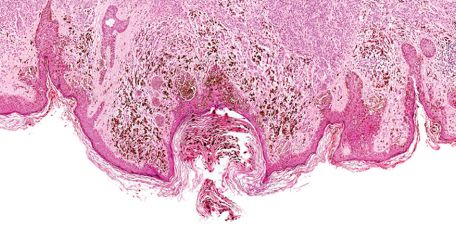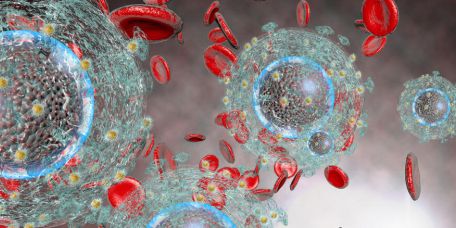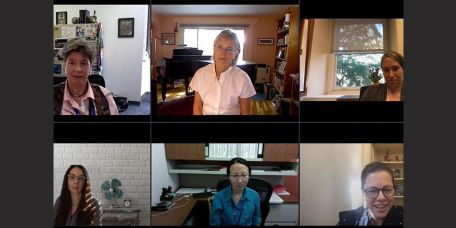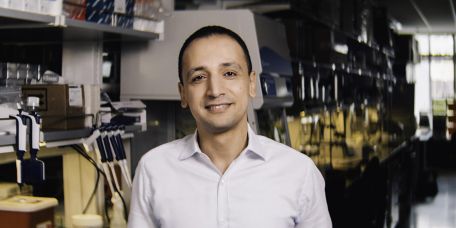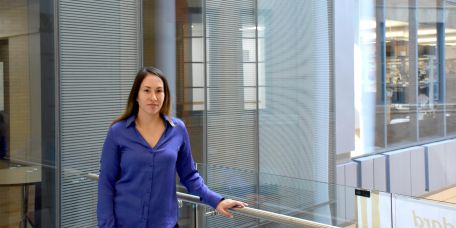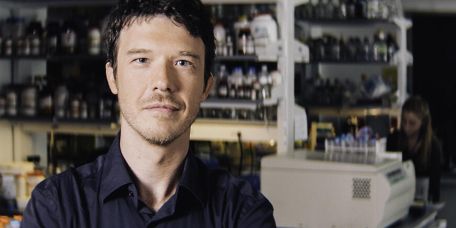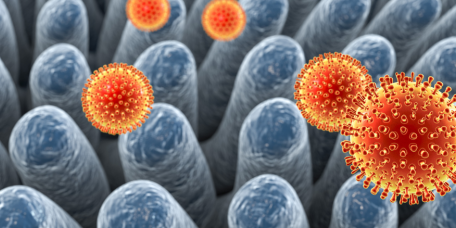The Wistar Institute
Wistar Scientists Discovered Fundamental and Widespread Gene Expression Control Mechanism that Potentially Creates Proteins at Distinct Locations in the Cell, with Implications in Immunity and Cancers
PHILADELPHIA — (July 20, 2021) — Alternative polyadenylation (APA) is an RNA processing mechanism that regulates gene expression by generating different ends on RNA transcripts of the same gene. Though it affects more than half of human genes, the s…
Melanoma Researchers Gathered at Wistar to Discuss Disease Progression and Therapy Resistance
Dedicated to the memory of melanoma research champions Dr. Shyam Somasundaram, Wistar scientist, and Eleanor Murdoch, melanoma advocate and mother of Noreen and Kate O’Neill, this year’s Symposium brought together international experts in basic and…
Wistar Scientists Discover Blood-based Biomarkers to Predict HIV Remission After Stopping Antiretroviral Therapy
Antiretroviral therapy (ART) is highly effective at controlling HIV infection, keeping the amount of virus in the blood so low as to be undetectable. This condition is called viral suppression. Yet most people experience viral rebound and disease pr…
Wistar’s Women and Science Program Talks Melanoma Research
After a day of virtual scientific talks that concluded Wistar’s 4th annual Noreen O’Neill Melanoma Research Symposium, a lay-friendly examination of melanoma with a group of interdisciplinary scientists continued into the evening during the Women &a…
Wistar Scientists Discover Blood-based Biomarkers to Predict HIV Remission After Stopping Antiretroviral Therapy
PHILADELPHIA — (June 29, 2021) — New biomarkers that predict HIV remission after antiretroviral therapy (ART) interruption are critical for the development of new therapeutic strategies that can achieve infection control without ART, a condition def…
The Wistar Institute Announces COVID-19 Vaccine Mandate for All Employees
PHILADELPHIA — (June 2, 2021) — The Wistar Institute, an international biomedical research leader with special expertise in cancer, immunology and infectious disease research and vaccine development, will require all employees to be vaccinated again…
The Wistar Institute Recruits Noam Auslander, Ph.D., as Assistant Professor to Bring Artificial Intelligence Research to Its Cancer Center
PHILADELPHIA — (June 1, 2021) — The Wistar Institute, an international biomedical research leader in cancer, immunology and infectious diseases, announces the appointment of Noam Auslander, Ph.D., as assistant professor in the Molecular and Cellular…
Discovering the Mechanisms That Fine-tune Gene Expression
Turning on or off one or more genes at the wrong time or in the wrong cells can dramatically alter their activity and lead to unrestrained growth and cancer. Therefore, numerous control mechanisms are in place to keep the whole process in check…
The Wistar Institute and Other Top U.S. Cancer Centers Call for Urgent Action to Get Cancer-Preventing HPV Vaccination Back on Track
PHILADELPHIA – May 20, 2021 – The Wistar Institute has partnered with doctors and scientists across America at National Cancer Institute (NCI)-designated cancer centers to issue a joint statement urging the nation’s physicians, parents and young adu…
Celebrating 15 Years of Protecting Children’s Health Worldwide
Milestone discoveries made at The Wistar Institute have led to the development of vaccines that protect children and adults from widespread and life-threatening diseases and have saved countless lives in the United States and around the world.&…

